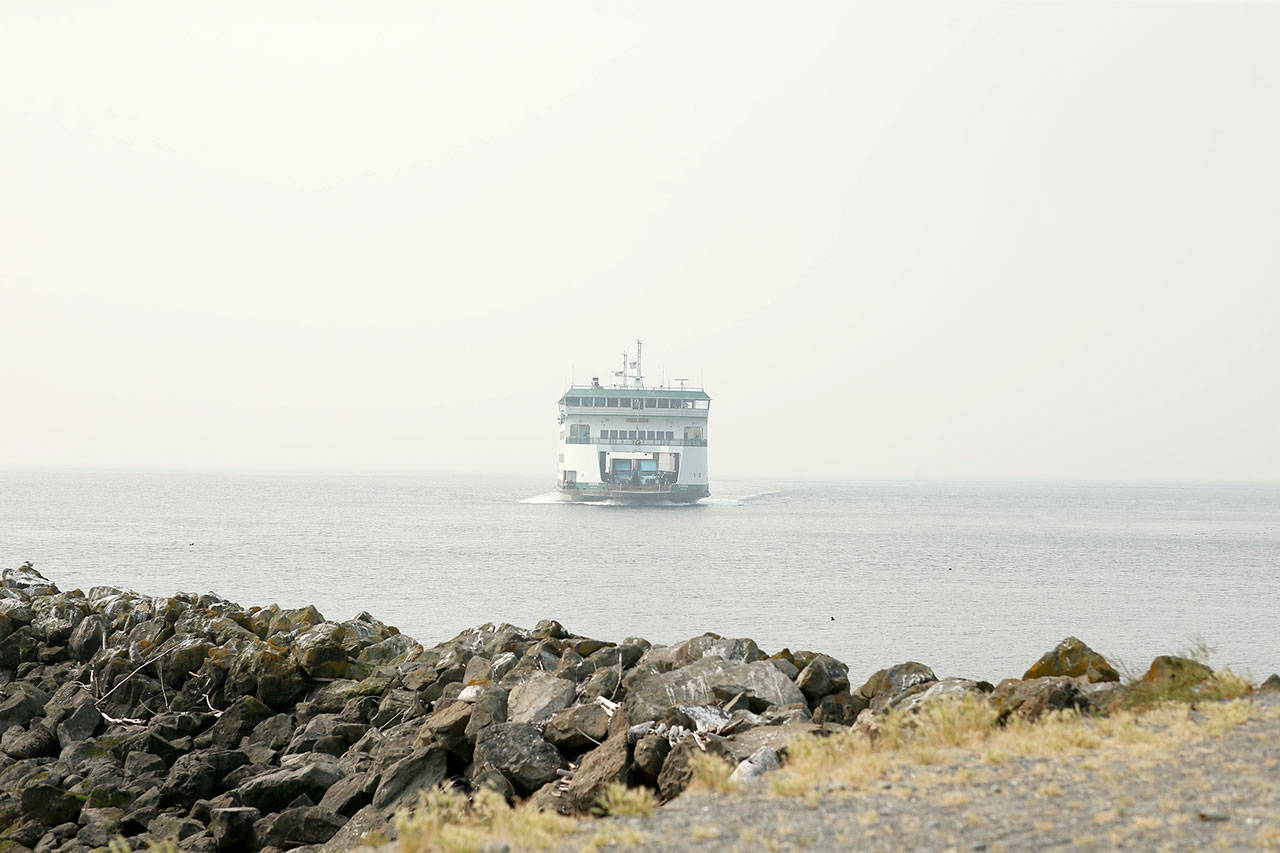Island County punctuated its current ban on burning because of fire danger with an additional warning Monday that a ban is needed because of unhealthy smoke from regional wildfires.
After a slight reprieve from hazy skies over the weekend, Puget Sound will remain socked in again this week from hundreds of wildfires burning to the north, south and east.
The Washington Smoke Blog reported that the air in Oak Harbor Monday night was “unhealthy for sensitive groups” while surrounding areas were deemed simply “unhealthy.” The blog was created by several federal, county, state and tribal agencies to alert residents to air quality concerns due to wildfires.
“The Northwest Clean Air Agency is calling a Stage 1 air quality burn ban for Island, Skagit and Whatcom counties because high levels of harmful wildfire smoke particles are impairing local air quality,” an Island County Sheriff’s Office press release stated.
The ban began 8 a.m. Monday and will remain in effect until further notice.
“This air quality burn ban is separate from, and in addition to, fire safety burn bans already in effect because of increased fire danger in the three counties,” the statement said. The ban includes campfires, fire pits and even fireplaces.
Mark Buford, Northwest Clean Air Agency executive director, said the air quality ban is needed to protect public health.
People can inhale tiny smoke particles deeply into lungs and damage delicate tissues. That can trigger asthma attacks, cause difficulty breathing, and make lung and heart problems worse. Air pollution is especially harmful to children, people with heart and lung problems, and adults ages 65 and older.
“Once the air has cleared, we will remove the air quality burn ban,” Buford said. “But the fire safety burn bans will remain in place until fire officials determine that fire danger has passed.”
NOAA maps show an “enormous amount of smoke” blanketing western Canada and the western United States, stretching from British Columbia to Ontario, Washington to Michigan.
During a Stage 1 air quality ban, no outdoor burning is allowed, including residential and agricultural burning. Home heating with fireplaces and uncertified wood stoves is also prohibited.
In Oak Harbor this week, both patients and staff at WhidbeyHealth’s Cabot Drive clinic reported being bothered with symptoms caused by widespread smoke.
“Speaking with my staff, they have noticed a sharp increase in adults with chronic conditions, such as asthma and chronic obstructive pulmonary disease, having lung issues,” Cabot Drive manager Lailonna Dodd said Monday. “This morning my staff are all coughing as well, as a result of the smoky air here.”
Some visitors to South Whidbey were escaping thicker smoke choking parts of Central and Northeastern Washington where residents are advised to stay indoors because of “very unhealthy to hazardous” air quality conditions.
“We’ve had quite a few people say they’re escaping the fires in Central Washington,” Inge Morascini, executive director of Langley Chamber of Commerce, said. “They’ve come here to get away from the smoke.”
Forecasters predicted Western Washington skies were expected to start to clear on Thursday.
To check smoke conditions around the state: www.wasmoke.blogspot.com
Northwest Clean Air Agency: www.nwcleanairwa.gov
Tips for coping with unhealthy air:
• Stay indoors when possible.
• Limit physical activity outdoors, such as running, bicycling, physical labor and sports.
• Close windows in your home, if possible, and keep the indoor air clean.
• Avoid driving when possible. If you must drive, keep the windows closed.
• Schools, camps, sports teams and day-care providers should consider postponing outdoor activities or moving them indoors.


